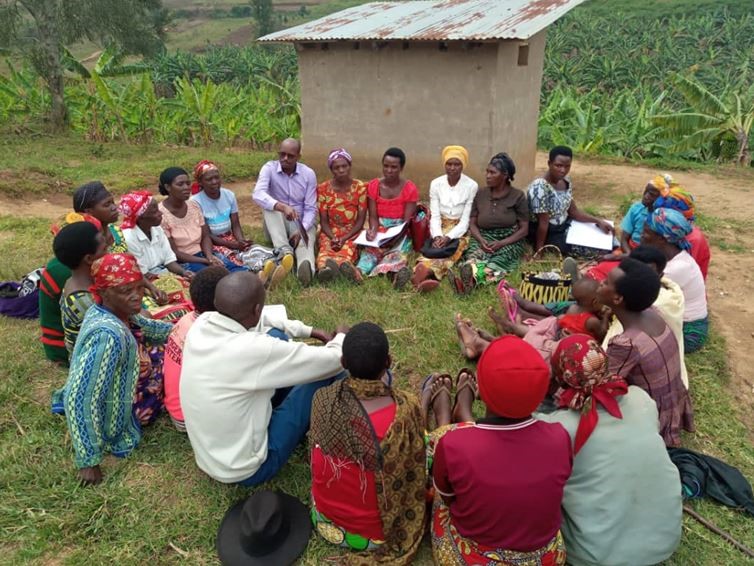
SURF was awarded last year a grant of CHF 89,250 by the Addax & Oryx Foundation to deliver, in partnership with AVEGA, the Empowering Vulnerable Genocide Widows in Karongi District to Alleviate Extreme Poverty (EVKEP) Project.
The project was launched successfully in May 2019 and a baseline survey was conducted to assess the current situation for beneficiaries as well as to set key monitoring points for evaluation.
The overall objective of the project is to empower 400 vulnerable genocide widows and 1,200 of their dependents in 13 sectors of Karongi District by alleviating poverty, reducing vulnerability, and improving food security and sustainable energy use.
So far, we have reached over 200 genocide widows with counselling and trauma therapy and 480 survivors are now members of income generating activity association with access to saving mechanisms. In this regard, we are very much on track.
We also planned to reach 1,200 dependents. These are children or family members of a survivor who are dependent on that survivor for financial support or care. Our programme aims to include survivor dependents in activities, especially income generating ones, as a means to lift entire families out of poverty and improve their standard of life. At present, we have identified 1,706 which we will target to benefit in some way from the project, and to date we have also directly engaged over 200 of them.
So far we have worked in eight of the thirteen sectors of Karongi, but the programme will be expanding to other sectors next year.
It is too early to estimate the percentage of households we have helped to lift out of poverty so far, but we have already helped to facilitate savings schemes of over RWF 2 million (CHF 3,000) and established 21 IGA associations, which is a significant start. The percentage of households will be assessed by the number of IGAs that access bank loans. Most are now in the stage of preparing their applications.
Overall, we are on track to meet our initial targets although it is still only six months into the project. We will continue to roll out our programme to the remaining five sectors over the coming year and monitor progress against the baseline study.
Over the course of the coming weeks, we will be sharing a few case studies of beneficiaries of the project here on our website.
